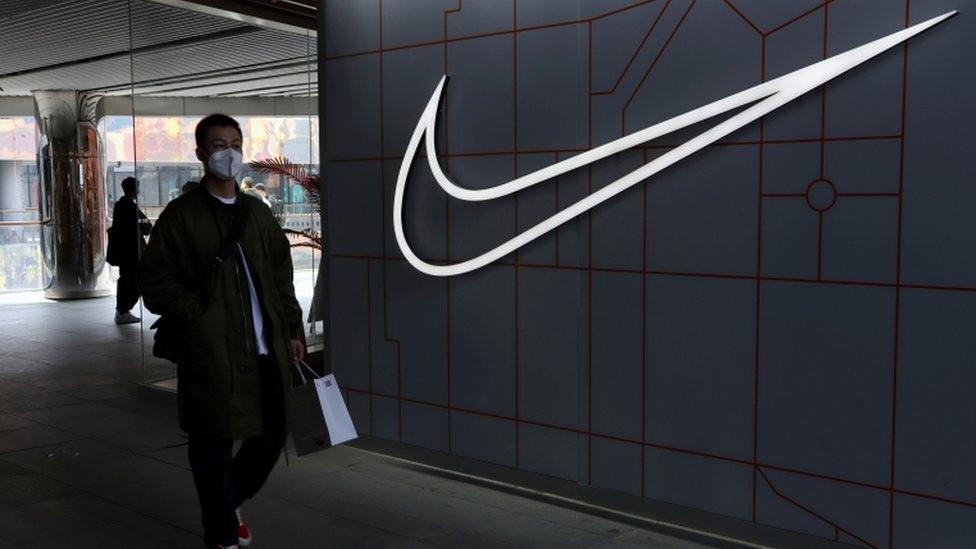France investigates retailers over China forced labour claims
- Published
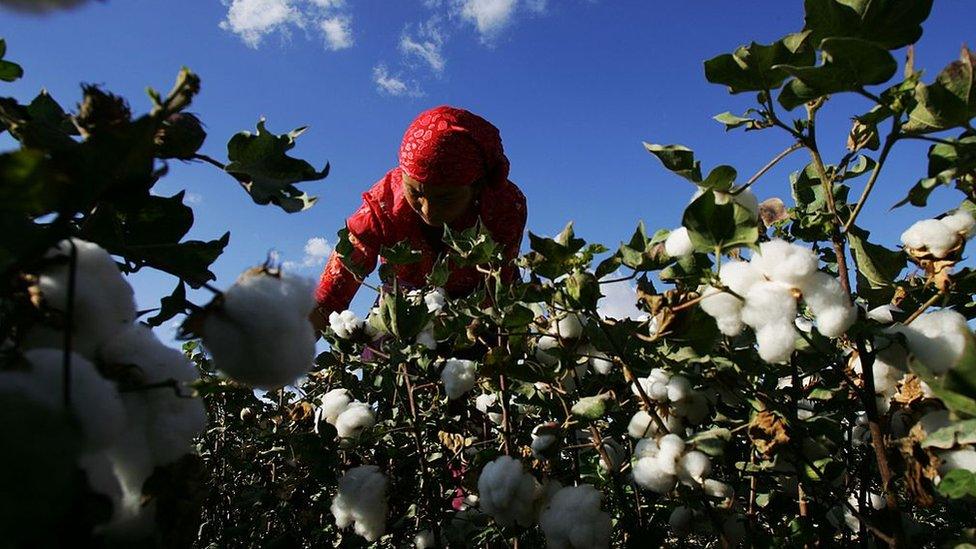
Retailers have hit back after authorities in France opened a "crimes against humanity" probe into their activities in China's Xinjiang region.
French prosecutors are looking into accusations four fashion brands sourced goods made by forced labour from Uyghur Muslims in China.
Uniqlo, Zara-owner Inditex and French textile firm SMCP deny the claims, while Skechers declined to comment.
China strongly rejects claims of human rights abuses in the region.
In March, the US, the European Union, UK and Canada imposed sanctions on Chinese officials, citing abuses in Xinjiang. Beijing retaliated immediately with its own.
French authorities opened the probe after complaints from the European Uyghur Institute and other pressure groups that the retailers were profiting from the use of forced labour.
An Inditex spokesperson told the BBC: "We strongly refute the claims in this complaint. Inditex conducts rigorous traceability controls and we intend to fully cooperate with the French authorities to confirm that the allegations are unfounded."
"At Inditex, we have zero tolerance for all forms of forced labour and have established policies and procedures to ensure this practice does not take place in our supply chain," the spokesperson added.
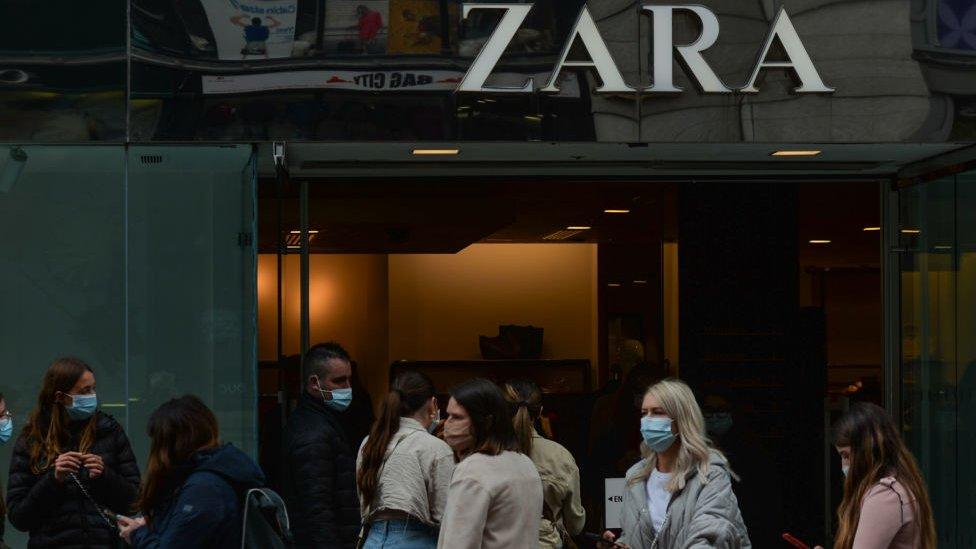
Inditex said it "fully complies" with all existing legislation and recommendations regarding the protection of workers' rights. The company says it has implemented a human rights compliance framework "based on the highest international standards."
Uniqlo's parent company, Tokyo-based Fast Retailing, said: "If and when notified, we will co-operate fully with the investigation to reaffirm there is no forced labour in our supply chains."
The spokesperson added that the company was aware of the media reports about the investigation but had not been contacted by authorities.
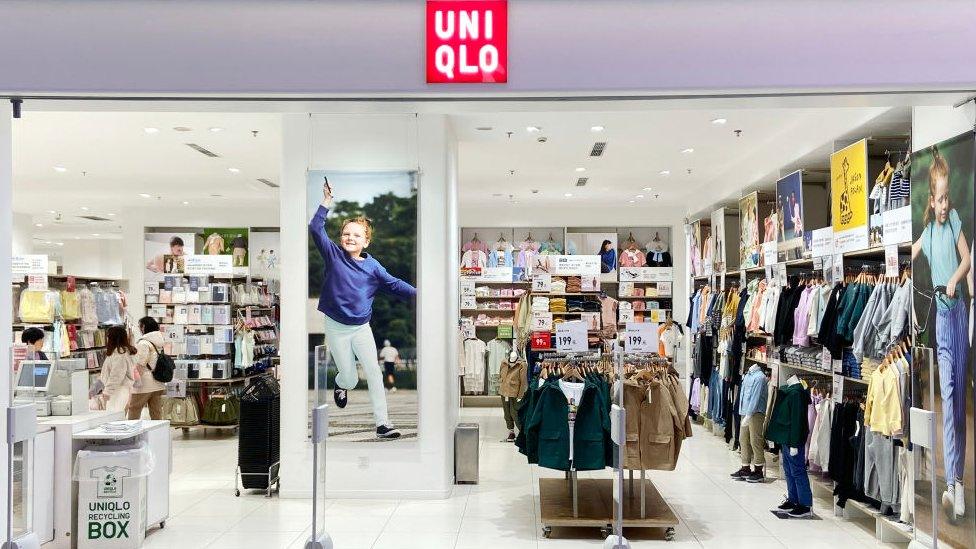
Uniqlo said it conducted audits to ensure no human rights violation in their supply chain and add that none of their production partners are located in Xinjiang.
French textile firm SMCP also said that it conducts regular audits and does not have "direct suppliers in the region mentioned in the press."
But Sophie Richardson, China director at Human Rights Watch, told the BBC that while international firms may conduct audits that do not find evidence of forced labour in supply chains, "political repression in the Xinjiang region is so pervasive that labour inspectors cannot interview workers freely without fear of reprisals".
She said inspectors cannot visit facilities without advance warning, and they cannot compel regional authorities to provide essential information about hours, pay, or other key labour conditions.
Rahima Mahmut, director of the UK World Uyghur Congress, agreed and said it is "impossible" to "carry out this investigation independently in the region because of the regime".
"We need more collaboration across countries and welcome this move by France but want the whole of Europe to carry out such investigations."
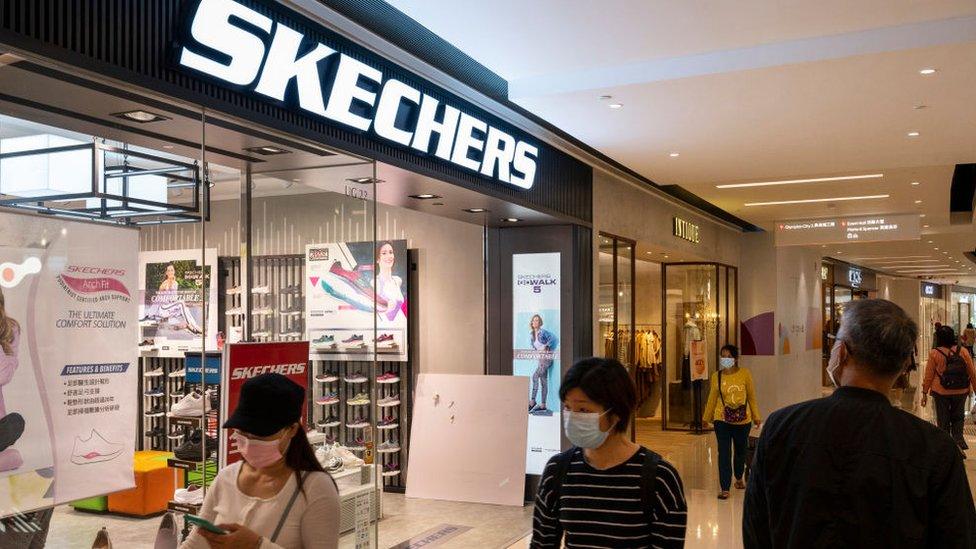
Sandra Cossart, director of anti-corruption organisation Sherpa, one of the groups that filed the complaint, added that the investigation "testifies to the potential involvement of economic actors in the commission of the most serious crimes in order to increase their profit margins".
The Xinjiang region produces 85% of China's cotton and accounts for about a fifth of global supplies.
Retailers Nike, H&M and Burberry are also facing a backlash in China after they expressed concerns about the alleged use of Uyghur forced labour in cotton production earlier this year.
Evidence shown to the BBC suggests that up to half a million Uyghur workers a year are being marshalled into seasonal cotton picking.
Uyghurs have been detained at camps where allegations of torture, forced labour and sexual abuse have emerged. China has denied these claims saying the camps are "re-education" facilities aimed at lifting Uyghurs out of poverty.
- Published2 July 2021
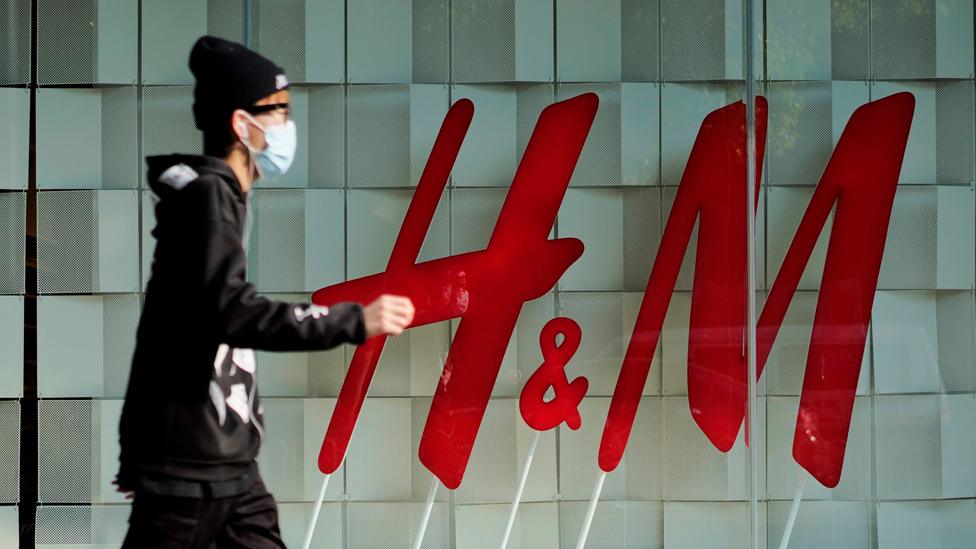
- Published14 May 2021
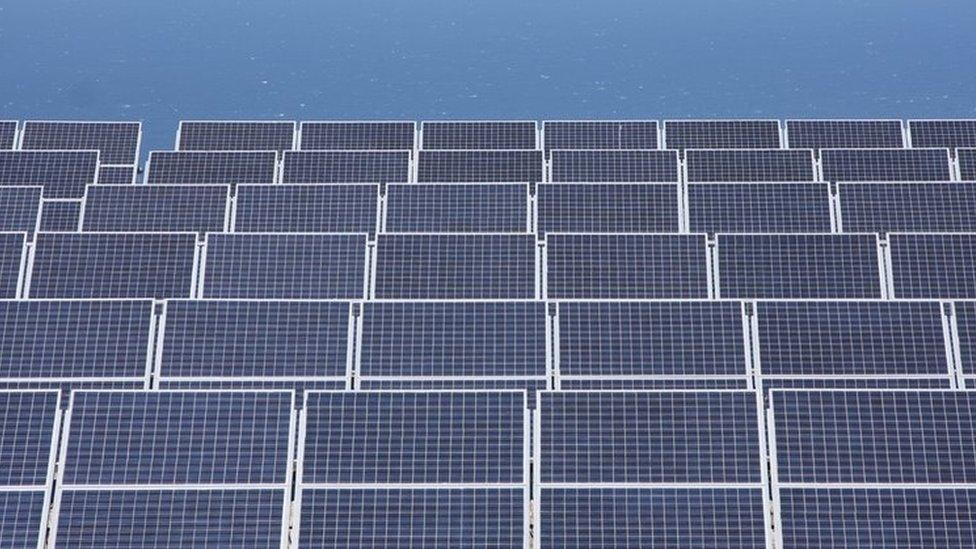
- Published25 June 2021
